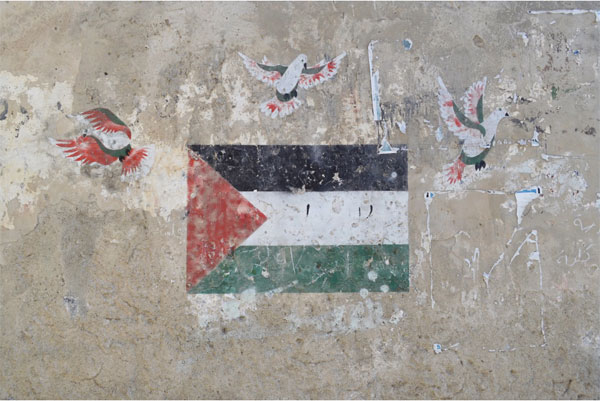Haniyeh’s assassination escalated Middle East tensions

[Palestinian Flag. Photo Credit to Unsplash]
The assassination of Hamas leader Ismail Haniyeh has heightened tensions in the Middle East, raising concerns about a potential escalation in the conflict between Israel, Hamas, other Middle Eastern countries, and the United States.
On July 31, 2024, Hamas’ top political leader, Ismail Haniyeh, was assassinated in a guesthouse in Iran by a bomb believed to have been planted by Israel with support from the US.
Hamas, a Palestinian Islamist political and military organization based in the Gaza Strip, is committed to resisting Israeli forces.
Ismail Haniyeh, who led Hamas’s political office in Qatar, was visiting Iran for the presidential inauguration, an important event for both Iran and Hamas.
According to Middle Eastern officials, the bomb was smuggled into Iran two months prior to the attack and kept hidden until it was remotely detonated by someone whose affiliation remains unidentified.
Two Iranian officials who described the assassination claimed they did not know how or when the bomb was planted in Tehran.
Iranian officials and Hamas claimed that Israel is responsible for the assassination, but Israel has not yet acknowledged any responsibility.
However, it is widely believed that Israel was the initiator of the assassination due to their promise to kill Ismail Haniyeh after Hamas attacked Israel on October 7, 2024 — the event that sparked the conflict in Gaza.
The assassination of Hezbollah’s commander Fu’ad Shukr, which took place one day prior to Haniyeh’s death, heightened fears of potential war, as both Hezbollah and Hamas promised to retaliate against Israel.
However, weeks of intense diplomatic efforts prevented the outbreak of a full-scale war.
Despite diplomatic efforts, the ongoing conflict between Israel and Hamas has escalated, this time with Iran and the United States also involved.
After the assassination, Iran’s supreme leader Ayatollah Ali Khamenei said, “Revenge is our duty, and Israel has prepared a harsh punishment by killing a dear guest in our home.”
Iran, a country with a series of allies including Lebanon, Syria, Iraq, and Yemen, not only attributed responsibility to Israel, but also criticized the U.S. for being complicit in the war due to its close ties with Israel.
Predicting the ramifications, Israel’s Prime Minister Benjamin Netanyahu said Israel is ready for any acts of aggression from its adversaries and is prepared for challenging days ahead.
On the other hand, the U.S. viewed the increasing conflict between Hamas and Israel, following the assassination, as a significant issue, while still expressing hoping for a peaceful solution.
White House National Security spokesman John Kirby said there was “no sign that an escalation is imminent” in the Middle East and that a cease-fire agreement for Gaza was still possible.
Similarly, U.S. Secretary of Defense Lloyd Austin said, “I don’t think that war is inevitable,” but “I think there’s always room and opportunity for diplomacy, and I’d like to see parties pursue those opportunities.”
U.S. Secretary of State Antony Blinken said that “Israel has agreed to a proposal aimed at resolving the issue preventing a ceasefire,” and urged Hamas to agree to it as well.
Blinken traveled to Egypt and Qatar for negotiations to try to end the war in Gaza and held a meeting with Israeli Prime Minister Benjamin Netanyahu about the war.
In the meeting with Benjamin Netanyahu, Blinken confirmed that Israel supports the proposal to bring a ceasefire to the war and stated that if Hamas accepts the proposal, negotiators will spend time working on implementing the proposal.
However, there are complications, as Hamas expressed a loss of faith in the U.S. as a negotiator, accusing the U.S. of siding with Israel.
In August, Qatar, Egypt, and the U.S. reached a deal with Israel to halt most military operations in Gaza and to release a number of Palestinian prisoners, while demanding that Hamas release all hostages abducted during the October 7 attack.
Nevertheless, as the deal was being negotiated, Hamas stated that Netanyahu continued to set obstacles to reaching the agreement, accusing him of trying to prolong the war.
Hamas also accused Israel of introducing new demands, specifically requiring it to maintain a military presence along the Gaza-Egypt border.
Despite efforts to ease the conflict between Israel and Hamas, it is still unclear whether the situation will get worse or improve.

- Matthew Park / Grade 10
- Seoul International School

![THE HERALD STUDENT REPORTERS [US]](/assets/images/logo_student_us.png)
![THE HERALD STUDENT REPORTERS [Canada]](/assets/images/logo_student_ca.png)
